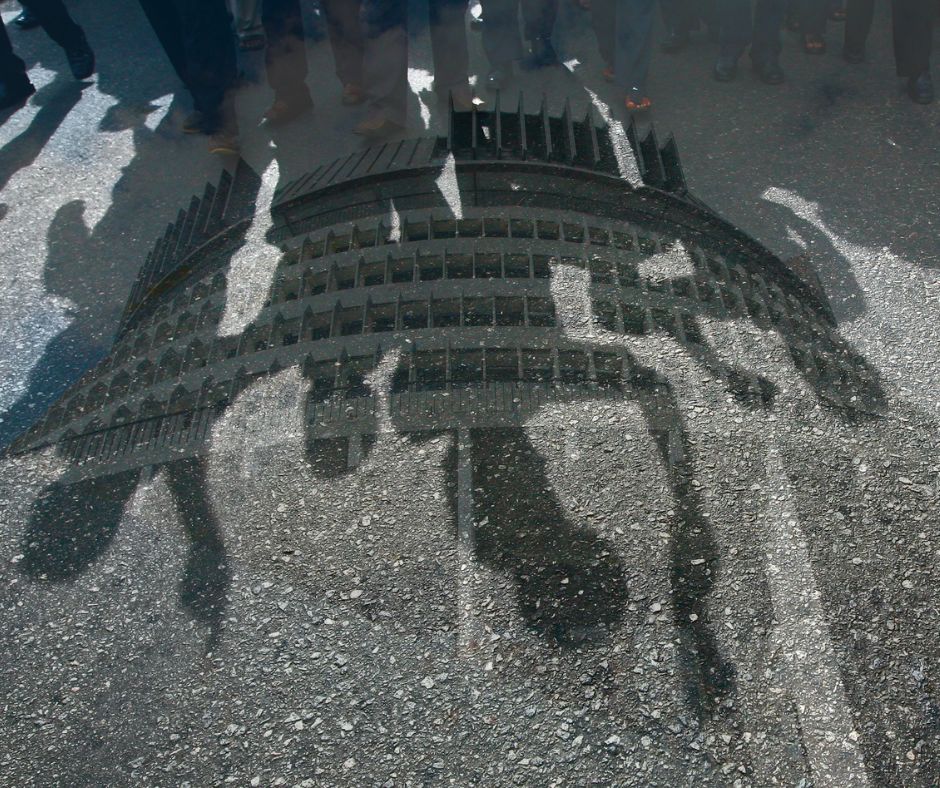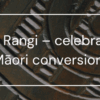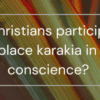This last week, supporters of the Tamaki-led Freedoms and Rights Coalition turned up outside Parliament, exercised their right to political protest, acted lawfully and peaceably, declared the Government guilty of crimes against humanity, and announced a new political initiative.
This event raises wider considerations about Christians, governments, and New Zealand politics. Here’s some points to reflect on…
- Christians are biblically required to submit to the authority of the governing authorities, honour them, pray for them, and be good citizens (Rom 13:1-7; 1 Pet 2:1,17; 1 Tim 2:1-2).
- Those biblical injunctions do not mean we have to agree with everything any government says or does. All governments sometimes act wrongly. The New Testament was written in the time of the Roman Empire, which was often idolatrous, unjust, corrupt, and brutal, and – before long – murderously anti-Christian.
- Also, the biblical requirement to obey and honour those who govern does not mean believers should ever deny Christ or do evil, even if the authorities try to compel us to do so. The Lord of heaven and earth must always take precedence over human rulers (Dan 6:6-10; Acts 5:29).
- God’s people remain free to speak up. There are numerous biblical examples, including Moses, Daniel, Esther, and Paul.
- In a parliamentary democracy, we get to help choose our government, and have the right to have input into some laws before they are passed.
- We live in a society which is increasingly pluralistic in belief and lifestyle. Christians cannot expect that the rest of society will see matters the same way we do.
- Biblically, there are values which every Christian should continue to live by and advocate for: God’s truth and grace, righteousness, justice, mercy, integrity, compassion, peace, generosity, care for the poor, faithful marriage, good parenting, strong family life, morality, the sanctity of life, care for creation, and love and respect for everyone.
- There are likewise many things Christians should resist, on biblical grounds: inequality (the deepening disparities between the poor and the well-off), inadequate housing, racism, exploitation, corruption, immorality, the promotion in schools of confusion about gender, the ongoing degradation of the environment, the killing of the unborn, the expansion of euthanasia, and the promotion of harmful drugs.
- The NZ Bill of Rights declares that we have freedom of religious belief and practice, and freedom of expression. Christians, among others, have cause to feel that those freedoms are under some threat.
- There are good and not-so-good things in the values and policies of all political parties, and very well-intentioned MPs in all parties.
- There is no one political stance among Christians, and Christians vote across the political spectrum.
- Political parties may propose laws, and may push them through if they have a majority, but laws are passed by Parliament rather than by political parties. To get better laws in “conscience” issues, and to help dissuade other MPs Parliament from passing detrimental legislation, we need a greater number of capable, committed Christians in Parliament, in all parties. Candidate selection is thus critically important.
- Politics is “the art of the possible”. We should aim high, but not place unrealistic expectations on Christian MPs. They can only achieve what is politically achievable.
- Only those politicians who are actually in Parliament can make a difference. Even under MMP, small parties very rarely make it into Parliament, or remain there.
- We should regularly pray for our MPs, Christian and otherwise.
Ultimately, the road to a better New Zealand is not political, but spiritual. It is in renewed and flourishing Christian churches, and in a new wave of Christian faith across wider New Zealand society.









0 Comments